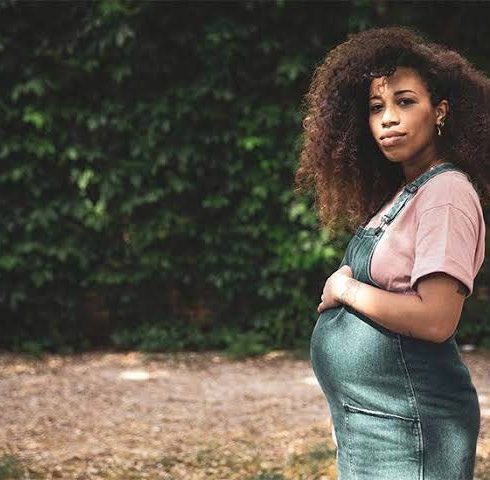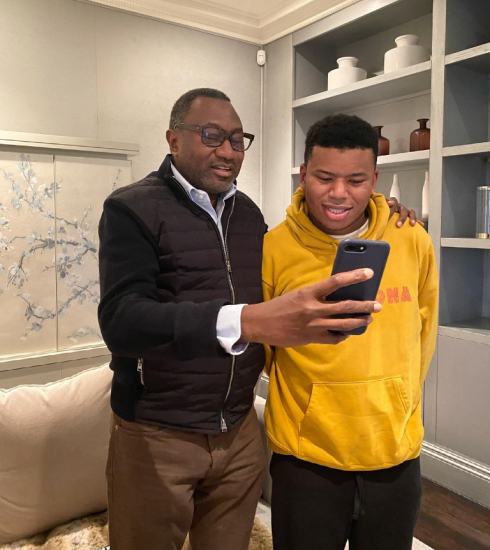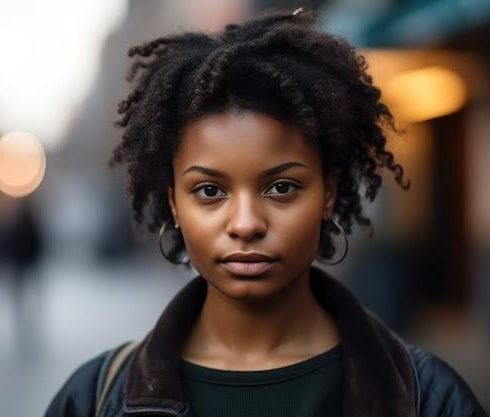Candid Moment With On Endometriosis Tania Omotayo
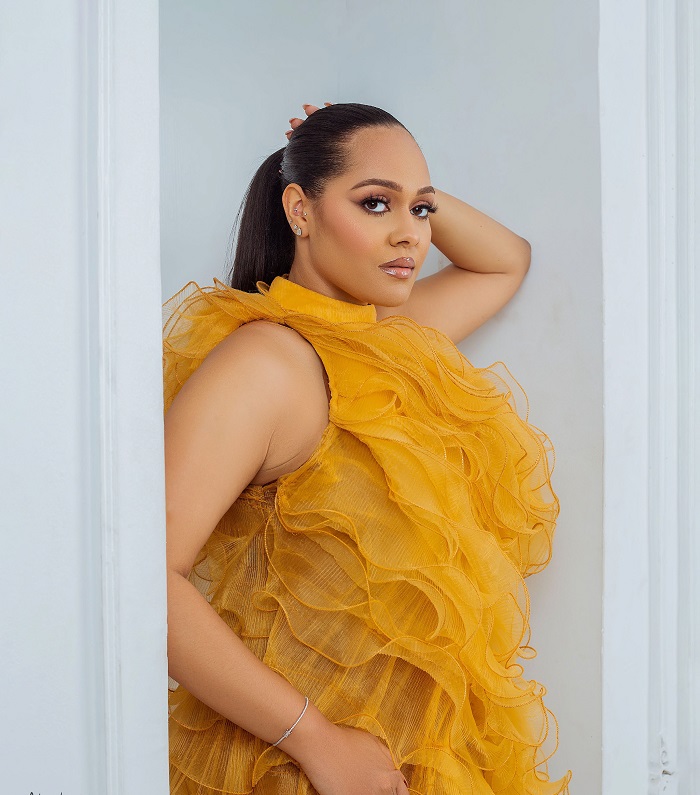
Perhaps one of the most significant characteristics of life, reproduction is an integral part of the continuity of the human race. And although it takes two to tango, a pretty large chunk of reproductive responsibilities are weighed on women’s backs from puberty until menstruation. For most women, the privilege of housing a child of their own and nursing its life from inception is sacrosanct. But this is not the case for some who have to battle against infertility, with the leading cause being endometriosis.
Endometriosis, which does not automatically translate to infertility, happens when tissue that is similar to the tissue that lines the woman’s uterus, grows outside of the uterus.
To discuss this medical complication, DOWNTOWN spoke to actress and fashion entrepreneur Tania Omotayo. Having battled endometriosis until her early 20s, the founder of Ziva Lagos—a ready-to-wear fashion brand that caters to modern women—welcomed her beautiful daughter four years ago. She shared her experience battling a condition long before she knew exactly what she was up against and came out victorious in the end.
Take us back to the beginning. What were detection and diagnosis like? How did you find out, and what was your reaction after you were diagnosed?
For many years during my teenage years, I had really bad periods, very heavy and very painful. I always knew deep down that something wasn’t right, but no doctor seemed to be able to figure it out. God bless my father because he took me all over the world from doctor to doctor, trying to figure out what was causing me so much pain, but most GPs couldn’t figure it out, and I even had one in Austria tell my father to my face that there was nothing wrong with me and I was just looking for attention. Even though I knew it wasn’t right, I gave up trying to figure out what it was. In 2014 I was in SA on a work trip, and I was scrolling through Instagram and came across Tanzanian Model Millen Magese’s Instagram post about her struggles with endometriosis. I remember screaming to my colleagues and telling them this was what I had, and it felt like I was reading about myself. There and then, I googled endometriosis specialists in Johannesburg, and I found one with incredible reviews. I called and booked an appointment immediately and called my dad to send me extra money.
During my scan, my doctor stopped for a moment and said, “I can’t imagine how much pain you’ve been in, your ovaries are covered in cysts, and you have stage 3 or 4 endometriosis, but we need to perform surgery asap to be able to properly diagnose you.”
My whole life flashed before my eyes, and I also felt my heart break into tiny little pieces. I was so devastated because I honestly hadn’t really researched it; I just thought I wouldn’t be able to have kids. I cried like a baby right there in the doctor’s office. But I also felt vindicated as I finally knew what was wrong with me after years of pain and trauma. A couple of days after my diagnosis, I had my first laparoscopy surgery.
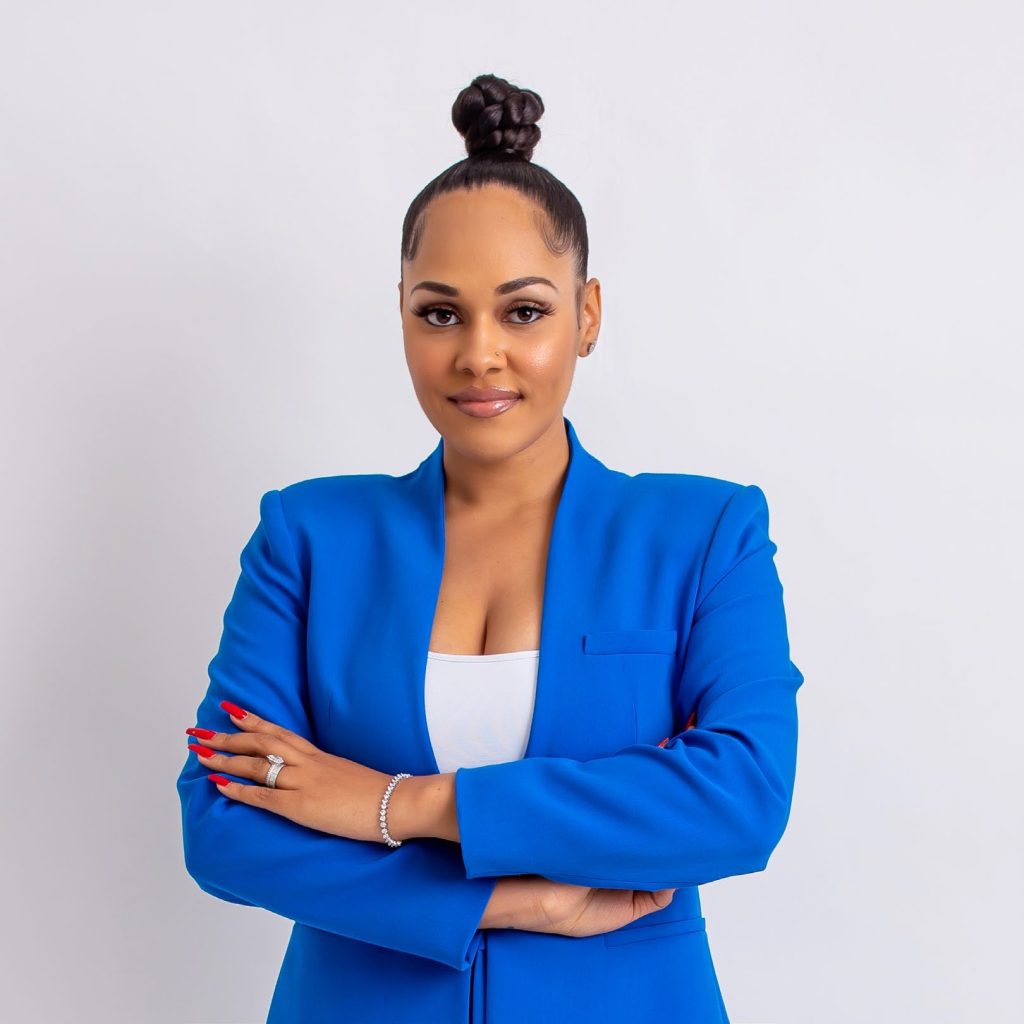
Of course, you had your family and loved ones with you through this journey. Were you also able to connect with other Nigerian women going through a similar predicament as you?
When I shared my journey with endometriosis on my YouTube channel, the response I got was unbelievable. I got so many messages from women and even parents who thought they had the same thing or their kids faced the same struggles. I’ve built a beautiful connection with so many women through sharing my story.
Endometriosis can make getting pregnant difficult, and we are all aware of the stigma that barren or childless women face, especially here in Nigeria. What kept you going through this period of your life fighting for your fertility?
I think it’s very important for me to say that endometriosis doesn’t always equal infertility. Infertility happens when it goes unnoticed and untreated.
Luckily for me, I found out when I was 21/22 years old, and I was still very fertile. I asked my doctor about freezing my eggs, and he said I didn’t have to because I was fertile and young. All I had to do was make sure I got checkups every 6 months to make sure everything was still on track. And only if anything changed would I need to freeze my eggs. And that was what I did till I had my daughter at age 26. I followed the doctor’s orders, and I was blessed enough not to have fertility issues. But I will say that during my pregnancy, I was on edge and always expected the worst. I never thought I would be able to carry to term and deliver my baby naturally.
For some women who can’t beat the disease, alternative reproductive methods are what they turn to. What are your thoughts on adoption and surrogacy in Nigeria?
I’m all for alternate methods of reproduction. It’s not a crime to not be able to carry a child or get pregnant. And thankfully, we have many options now, so I think women should use them if they have the opportunity. There are many credible adoption and surrogacy agencies in Nigeria now, and I think that’s amazing.
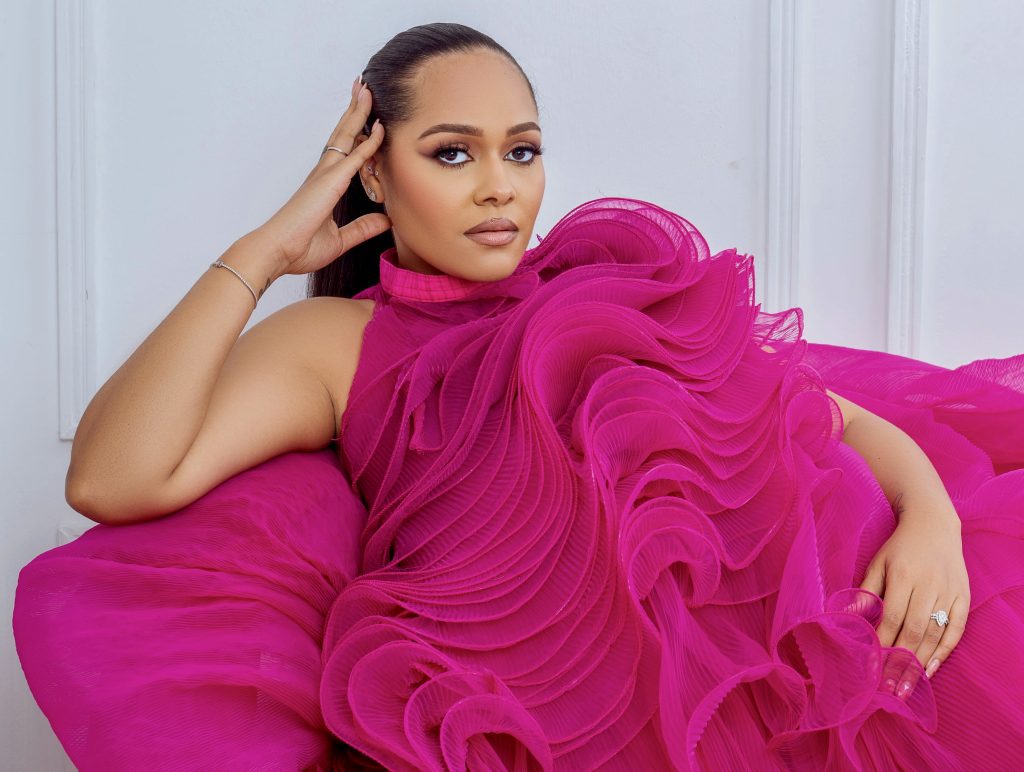
What do you think needs to be done to help Nigerian women with their reproductive health? Legislation? Public education? What does the government need to do?
I think General Practitioners (GPs) need to be educated. A regular GP will not look for endometriosis when you complain of the symptoms because that’s not their area of expertise. But women also need to be educated because if you don’t know what to look for, it’s very hard. It took me over nine years and over a dozen doctors to figure out that I had endometriosis. If I had known what to look for, it wouldn’t have taken me that long.
How did you feel about your healing when you found out?
I was broken for a few months, but I had incredible support and was very okay with alternative methods to having children. If I couldn’t have a child naturally, I would have done IVF or surrogacy. If that didn’t work, I definitely would have looked into adoption. I remember my prayers over the years till I had my daughter. I prayed to God to just let me be able to carry one child at least, so I could experience it. And I’m so grateful that I was able to experience pregnancy. It’s a blessing I will forever be grateful for.
What piece of advice do you have for women who are battling endometriosis?
The most important advice I think I can give is never to miss a doctor’s appointment and to get regular checkups. The problem with endometriosis is that it can be recurring. So if you don’t get checkups after surgery, it can come back and cause more harm.
Self-identifies as a middle child between millennials and the gen Z, began writing as a 14 year-old. Born and raised in Lagos where he would go on to obtain a degree in the University of Lagos, he mainly draws inspiration from societal issues and the ills within. His "live and let live" mantra shapes his thought process as he writes about lifestyle from a place of empathy and emotional intelligence. When he is not writing, he is very invested in football and sociopolitical commentary on social media.




